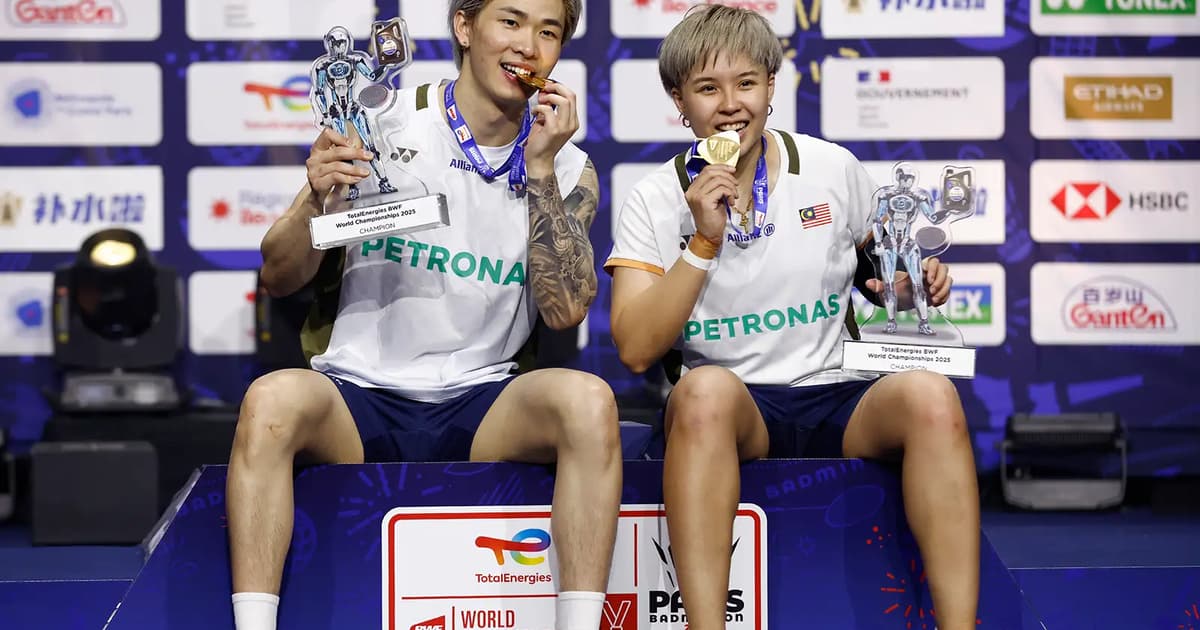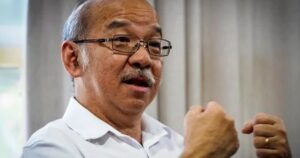
From C Sathasivam Sitheravellu
As we continue to bask in the thrill and pride of watching our brilliantly talented shuttlers shine at the World Championships in Paris – where Chen Tang Jie-Toh Ee Wei clinched gold in the mixed doubles, and Pearly Tan-M Thinaah won silver in the women’s doubles – we want to afford them every accolade they deserve.
It lifted our hearts to see the Jalur Gemilang raised high and our national shuttlers singing Negaraku with tears in their eyes. Every medal at a world championship, regardless of colour, is hard won and brings glory and honour to the athlete’s homeland.
BAM president Tengku Zafrul Aziz has yet to announce the rewards the shuttlers will receive for their achievements. At present, the Badminton World Championships does not provide monetary rewards for medal winners.
There is no way to fully compensate elite athletes for the years of gruelling hard work and sacrifice required to succeed on the sport’s biggest stage. However, BAM can inspire them by having a clear and consistent reward system in place for medal winners, regardless of the medal’s colour.
What many badminton enthusiasts may not know is that BAM provides its top-ranked players with a healthy monthly salary of at least RM20,000, along with EPF and Perkeso contributions, in addition to the prize money earned at tournaments. Some of our top players are believed to earn over RM1 million annually.
At the recent World Championships in Paris, Tang Jie-Ee Wei received RM20,000 under the government’s Shakam programme, as well as RM50,000 from local snack and beverage company Mamee. I hope that more private companies will step forward to also recognise the efforts of Pearly and Thinaah for their silver medal in the women’s doubles.
In the past, there were promises of rewards that were never fulfilled. I recently read in FMT that at least 10 sporting legends never received the RM5,000 prize promised to them for winning the sportsman and sportswoman of the year award between 1966 and 1982.
This is a sad commentary. Responsibility lies with the past leaders of the Olympic Council of Malaysia, the Malaysian Amateur Athletics Union, and the sports ministry.
How can we expect athletes to excel internationally if they are treated as an afterthought? And was the promise of monetary reward so insignificant that it could simply be ignored?
Success in sports today requires far more than raw talent. Coaches, trainers, sports psychologists, and science-based technologies provide the winning edge. To hire and retain these top professionals, we must invest generously in them.
Unfortunately, Malaysia has lost too many stellar coaches to neighbouring countries, where they now produce medal-winning athletes who might have worn our colours.
For our top athletes, we commend youth and sports minister Hannah Yeoh and her team for the Road to Gold programme.
Athletes must prove their worth to qualify but once accepted, they receive comprehensive support: enhanced allowances, access to elite training facilities, expert sports science and medical care, psychological preparation, and international exposure through training camps and competitions.
This initiative aims to build a stronger foundation for Malaysian sports and, ultimately, secure our nation’s first Olympic gold medal.
Beyond government incentives for world championship success, there must also be long-term recognition for retiring athletes.
They should be granted lifelong healthcare given the toll that years of training take on the body, as well as opportunities for further education, career counselling, financial planning, and pensions to secure their welfare.
Many have compared our athletes to the nation’s military personnel: both serve the country with pride and deserve proper support in retirement.
Finally, I urge the corporate sector to play a greater role. Tax incentives could encourage more companies to contribute to rewarding athletes.
Product endorsements, too, are vital, providing athletes with an income while giving companies valuable brand ambassadors.
Nicol David, eight-time world champion, continues to honour Malaysia through her endorsements and corporate partnerships.
Shouldn’t we want the same for our current and future stars, who dedicate their lives to bringing glory to Malaysia?
C Sathasivam Sitheravellu is a former national athlete.
The views expressed are those of the writer and do not necessarily reflect those of FMT.






